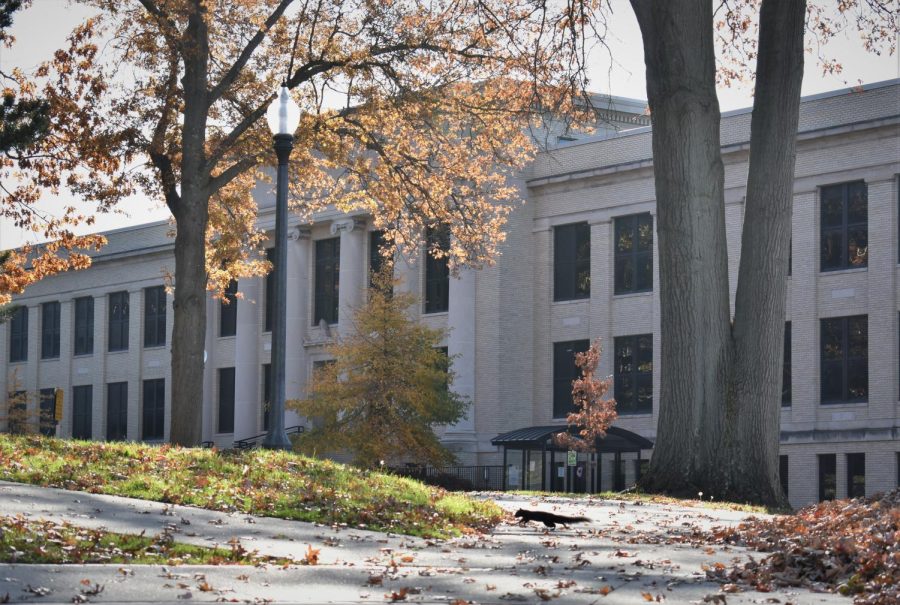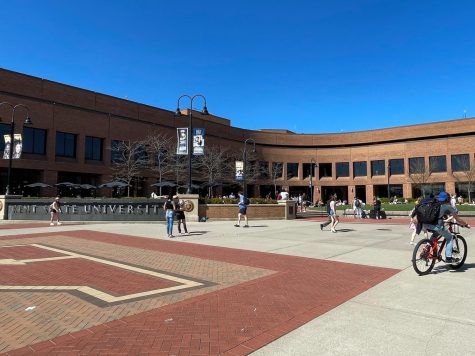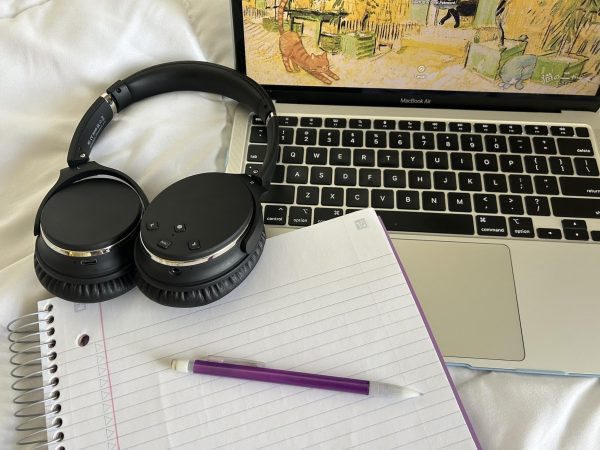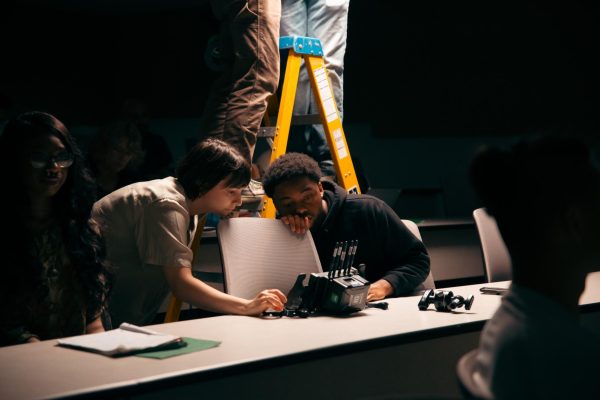CARES Act funding supports updates to Franklin Hall classrooms
April 6, 2021
Franklin Hall is using CARES Act funding for technology updates intended to help professors and students connect as smoothly as possible during the transition back to in-person classes and beyond.
Kent State received $19 million in CARES Act relief and has used it in different ways.
“The College of Communication and Information put forward a proposal to ask for support in renovating Franklin so that it could become a much more experimental teaching space,” said Amy Reynolds, the dean of the college.
The college holds most of its classes in Franklin Hall.
Within the hall, the 150-seat First Energy Interactive Auditorium in room 340 drew interest as a key space that could be updated to accommodate a hybrid environment for both online and in-person classes.
“I think 340 is such an important space because it can seat so many students, and even in a physically distanced situation you could still safely fit roughly 25 or 30 students there,” Reynolds said. “It makes sense to create some hybridity, and I was so grateful that the university saw this as a worthy project.”
Some of the technology updates for the auditorium include 98-inch TV displays, ceiling microphones to pick up sound more efficiently and updated audio systems, Jim Raber, the executive director of Information Services, said.
“That room is the only room on campus that received that update for hybrid delivery where you’d have some people that may be on site, some people that may be remote and the instructors would have the technology to support both kinds of approaches,” said Raber.
The updates to Franklin Hall overall can relate across campus. The money from the CARES Act has given support to professors and students to help them get through the pandemic.
While over half of the initial CARES Act funds to Kent State were distributed to financially aid students, the rest of it has been distributed to staffing, cleaning supplies and projects such as this to keep the learning environment as efficient as possible.
Seven other rooms in the hall qualified for technological updates.
In each of the classrooms’ new dynamic, the computer is the focus because the instructor now has to rely on it to get content to students online and in-person.
The rooms are also going to be fitted with a piece of technology that would make joining Microsoft Teams meetings consistent across classes. The tech is called “Flex” and is made by a company called Crestron, Raber said.
“Its sole purpose is to connect to Teams conferences. That way, you don’t have to rely on an older PC that may be of variable age,” he said.
Rooms will also receive a “Surface Hub,” which is a 55-inch digital whiteboard.
These were examples of what went into the total $160,000 to $170,000 spent for technological renovation, he said.
“We took inventory of all the computers and instructional spaces, and anything that was beyond the age of four years we refreshed,” Raber said. “That way, at least every classroom has some sort of modern computer in it to help deliver the course.”
Austin Monigold covers CCI. Contact him at [email protected].
























